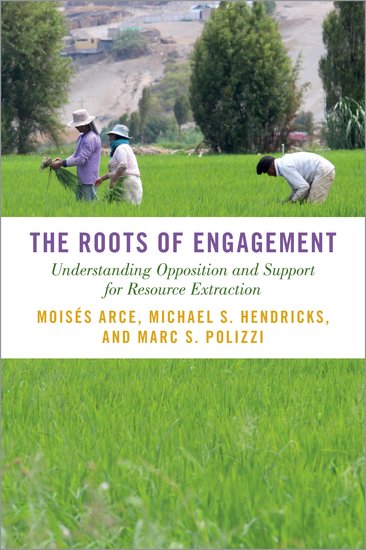On October 20, Dr. Michael Hendricks published his co-authored book The Roots of Engagement: Understanding Opposition and Support for Resource Extraction with Oxford University Press. For the time being, the book is available for free download under open access at the previous link.
The book challenges existing studies of resource conflicts that emphasize the structural characteristics of mining projects and the strategies of pro- and anti-mining groups in the context of large-scale mining. Specifically, Hendricks and his co-authors, take a different approach that looks at individuals living near proposed mines. They argue and show that individuals are drawn to their communities in different ways. Some of them participate in local organizations more than others, and this social engagement sets them apart from each other when it comes to their views and later demands about mining.
By participating in local organizations, individuals gain critical information about the threats posed by mining as well as resources to address community concerns. Participation in local organizations also emboldens individuals to challenge industry and/or government actors seeking to expand resource extraction. And finally, participation in local organizations imparts a community worldview that allows community members to see themselves as being in the same boat, thus also rejecting proposals that jeopardize existing community livelihoods.
Individuals who are less socially engaged, in contrast, are more open to embracing the opportunities about mining coming from industry and/or government actors. They apply greater weight to the importance of resource extraction to the nation and their own pocketbooks. These individuals are more likely to express supportive views about mining.
The book examines this variation in individual attitudes in three sites characterized by protracted mining conflicts in Peru, Nicaragua, and South Africa. Fieldwork and original surveys in host communities near proposed mines support their arguments.


